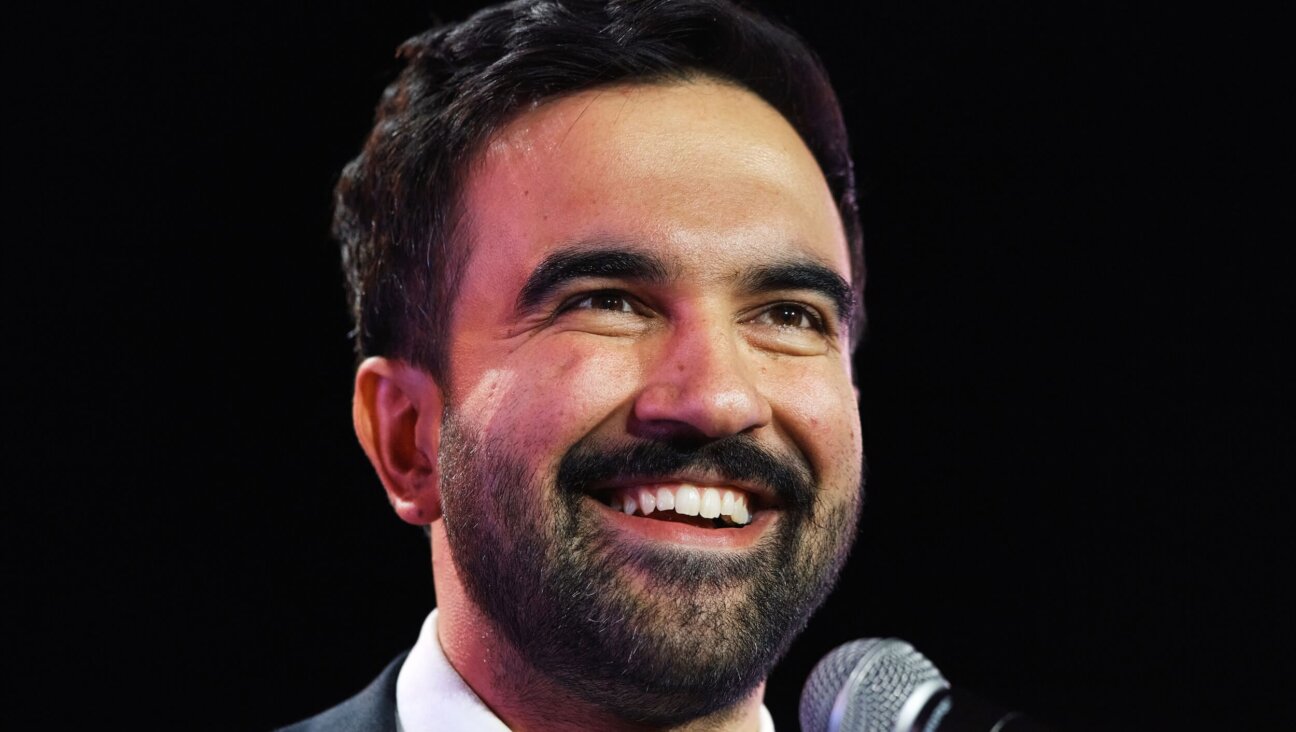Speed-Dating My Way to My Daughter’s Pediatrician

Finding a pediatrician for a newborn is no easy feat. Image by Istock
How does a mother-to-be choose a pediatrician for her baby-to-be?
My mother recently reminded me of her awful experience with my first pediatrician, when she became a first-time mother. Underslept and anxious, my mother had some difficulty with breastfeeding, as happens to so many new mothers. I gained no weight during that first month, which concerned my mother. The pediatrician’s helpful response was to tell my mother that she was causing me brain damage. Luckily, my mother replaced this doctor with Dr. Lazarus, another pediatrician who had both sterling medical credentials and human skills. Under the care of this second doctor, the breastfeeding began to work, and I became an increasing presence on the office scale.
Three decades later, as motherhood approached, I wanted to find my own Dr. Lazarus. Late in my pregnancy — I gave birth in May — I asked local parent-friends for referrals, ran doctors’ online profiles by my doctor-sister, and arranged to interview a handful of the finalists. Interviewing pediatricians is one of those rituals you don’t know exists until you’re pregnant.
Of course, no one tells you what you need to ask in those 15-minute interviews. So, I contacted two pediatricians I know, both of whom work too far away for me to use. My college friend was particularly helpful — recommending that I ask a series of logistical questions, along with any fundamental philosophical questions that I thought might make or break my relationship with a new doctor. List of questions in hand, I set out to speed-date my way to my baby girl’s first doctor.
The first doctor, a solo practitioner, was easy to schedule. I got in right away, which I took as a good sign, feeling like I was being prioritized. This first interview was on a cold and rainy February day. The doctor led me to her small, dark office. Hearing that my sister is training to be a geriatrician, this pediatrician offered that that would have been her other specialization choice. A very flat speaker, she seemed to be working overtime to be likeable. Given the 15-minute time limit, I wanted to make sure I had time for my questions.
Struggling to read my list, I proceeded to ask a series of logistical questions before getting to the two big “philosophy” questions. I asked the doctor whether her practice had a philosophy regarding breastfeeding and sleeping. She responded that she’s supportive of breastfeeding and encourages all mothers to do it, unless for some reason, they’re simply unable. On the sleeping question, she hemmed and hawed. She wanted to know what I thought. I said I had an opinion on Sears v. Ferber, but I wanted to know what hers was. She said it’s fairly normal for a baby to cry when put down if she is tired and cranky, but the doctor thought it shouldn’t go on more than 10 minutes and that you should say “shhh” and rub the baby to calm her. Truth be told, I wasn’t comfortable dealing with such an experienced doctor who had so much trouble verbalizing an opinion about such a straightforward question. It all felt too wishy-washy.
This doctor also raised an eyebrow (mine) when she warned me to be careful not to gain 40 or 50 pounds with my pregnancy, since it’s not healthy and hard to lose the weight. Granted, she didn’t know that I was exercising regularly and wasn’t stuffing my face with jelly doughnuts, but that was quite the non-sequitur. Even more bizarre was her ending our interview by regaling me with her own pregnancy complications, including bleeding six weeks postpartum because some of the placenta had remained in-place after labor. This was too much information for yours truly, who began wondering if all pediatricians had become Oprahfied share-a-holics.
Thankfully, Doctor #2 proved that not every doctor in Boston is guided by the gospel of Oprah at work. This pediatrician had taken the longest to schedule. When I arrived at her office on a chilly March afternoon, I understood why; she was part of a two-person practice that was sometimes supplemented by a solo practitioner, so she was always the primary or back-up doctor. This doctor was the youngest of the three — she looked mid-30s — and on paper, she had the most impressive credentials.
I was hopeful as she led me back to her windowless office. I liked the child art on the walls. It added warmth and cheer to the otherwise all-white space. Very personable, this doctor seemed like she could both talk to parents and relate to children. She kindly offered me a tour of the office suite as part of our meeting.
When we settled down to discuss my questions, I once again raised my two key philosophical issues. The doctor assured me that her practice is supportive of breastfeeding. They even provide a private room mothers can use to nurse while waiting for an appointment. However, on the sleep question, the doctor surprised me by saying that she is a big supporter of sleep training — i.e., the Ferber method. She then asked what I thought of Ferber. Caught off guard, I blurted out that I think it’s cruel.
This doctor’s focused approach to sleep is part of the medical mainstream, but it didn’t sit right with me. And it was presented as the option. It felt too rigid. I imagined being chided on future visits for my sleep-related decisions.
Thankfully, there was one more doctor to meet. This third doctor, a Peace Corps alumna who belonged to a small group practice, was slightly harder to schedule than the first and slightly easier to schedule than the second.
She didn’t seem thrown by my questions about breastfeeding and sleep, and confidently answered that she would do whatever she could to support me in my decisions and whatever worked for my baby and me. One of the practice’s nurses also serves as a lactation consultant and would be available to help as often as needed in the early days. This all sounded good, as did the doctor’s saying she said she wouldn’t tell me to let the baby cry it out because the baby “should be sleeping through the night already.” Doctor #3 noted that every baby and every parent-baby situation is different, and parenting books are just lots of people’s advice, so it’s important to sift through and take what works for you and your baby and discard the rest. This sounded like a woman who was both an experienced parent and a confident doctor with a balanced approach to her job. I left the office happy, sensing that I had just met our pediatrician.
Nine months is a big investment of time. When the many hours of doctors’ visits and travel to and from those visits are tallied, it’s a lot for any woman — and it’s only the beginning.
As a group, new mothers are famously vulnerable and nervous about a host of issues. So, as someone who typically has a sense of how she likes to operate but recognizes she was entering unfamiliar terrain, my goal was specific: I wanted to find a doctor I could work with. It didn’t necessarily need to be someone who agreed with 100% of my choices. However, the doctor did need to be someone who would be helpful and supportive as a sleep-deprived me navigated all the newness a baby brings. Any of these three doctors might be a good fit for the right family, but as Doctor #3 noted, every mother-baby pair is different. And luckily I found in Doctor #3, a pediatrician who is just right for my new family and me.

















